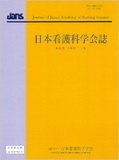Japanese
English
- 販売していません
- Abstract 文献概要
- 参考文献 Reference
要旨
目的:「HIVとともに生きる人」の人生や,社会や文化との関係性に着目し,抗HIV薬を飲むこと,やめることの意味を明らかにする.
方法:治療を中断した経験のあるHIV陽性者1名にインタビューを行った.医学的・道徳的観点で「正しい」現代社会のコンテクストを相対化し,社会文化的状況と照らし合わせて当事者の語りを医療人類学の観点から分析を行った.
結果:当事者にとってHIV感染症は【自分を内に押し込める病い】だった.抗HIV薬は《生死を意識させないための薬》《生活を乱す薬》という2つの意味を持ち,彼は《生活を乱す薬》を目の前から消し,《病気じゃない人みたいに生きる》ことで【生きる価値を取り戻】していった.
結論:薬は生命を支える重要なものであるが,人々が個々に価値を置く多様な〈生〉の一部である.HIV陽性者のケアは,個人だけでなく,地域や文化・社会の背景との関係にも着目して行うことが重要である.
Objective: This study aimed to understand the implications of life for people with HIV stopping their medication of anti-HIV drugs, through their narratives and focusing on their relationship with society and culture.
Methods: This study is based on an interview of an HIV-positive person who had discontinued his treatment. The context of what is “correct” from a medical and moral point of view in modern society was relativized to analyze the interviewee's responses from the perspective of medical anthropology considering socio-cultural situations.
Result: To the interviewee, HIV infection meant a “disease that pushed him into a closed way of thinking and acting.” HIV drugs showed him two meanings: “drugs that prevent awareness of life and death” and “drugs that disrupt his life.” By eliminating these “drugs that disrupt his life” from his life and “living as if he was not sick,” he “regained the value of life.”
Conclusion: Although drugs are important to support human life, they form only a small part of the lives of the users. It is important to provide care for HIV-positive people not only considering the individual but also focusing on the relationships between neighborhoods and backgrounds of culture and society.
Copyright © 2022, Japan Academy of Nursing Science. All rights reserved.


